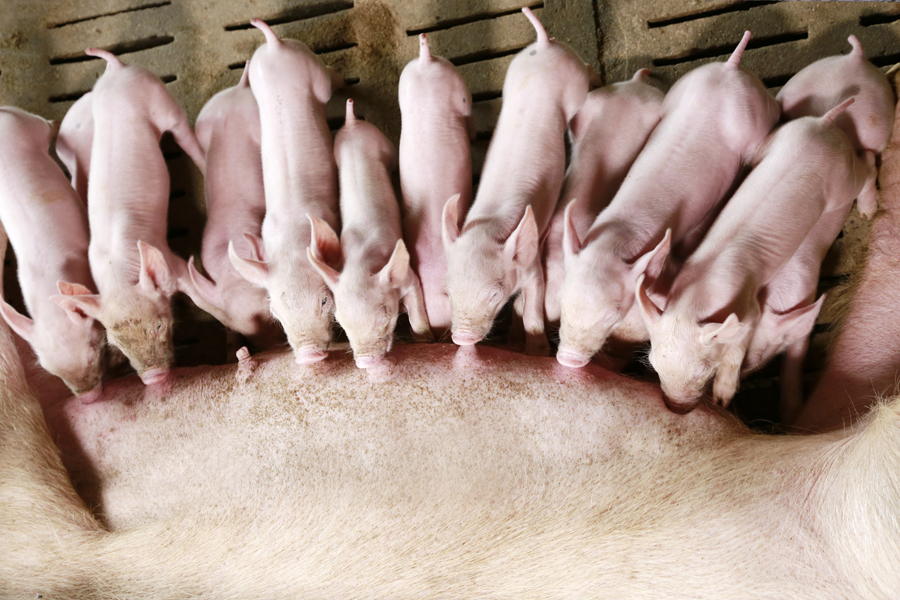Although arginine is an essential amino acid for piglets and is necessary to obtain maximum performance at different stages of pig production, for a long time this amino acid has been considered as non-essential for this species. As a result, arginine requirements in pig diets have not been established in a precise way.
As in other production animals, modern pig breeds have evolved improving their productivity and efficiency being the requirements in arginine even more important if the aim is to achieve maximum performance and productivity.
In this article the most important functions of arginine in the different production phases of pigs have been reviewed.
Pregnant sows
Currently, sows ovulate between 20 and 30 oocytes, resulting in about 10 to 15 live piglets per litter, uterine capacity and placental growth being determining factors in foetal mortality during gestation.
Arginine is the most important amino acid both in the placenta and in the allantoic fluid in the sow, its metabolites, polyamines and nitric oxide being basic for a correct placentation.
Arginine supplementation of the diets of pregnant sows has resulted in:
- Increase in the weight of the placenta thus improving the arrival of nutrients to the embryos.
- An increase in the number of piglets born and also in their survival capacity.
- An improvement in the size and weight of the litter.
Lactating sows
Arginine supplementation of the diets of lactating sows has increased blood flow in the mammary glands, resulting in:
- An improvement in the milk production.
- An improvement in the nutritional composition of milk.
- An improvement in the growth of the piglets and in the body condition of the sows
Piglets
Neonatal piglets are especially sensitive to arginine deficiency. The addition of arginine in suckling piglets has meant:
- An improvement in body weight gain.
- An improvement in piglet growth.
Conclusion
The optimal arginine requirement in pigs is often not taken into consideration although arginine is deficient in most production phases.
Arginine is commercially available and has been registered as a feed additive by the European Commission. In addition, the current prices of arginine allow it to be included in pig diets to meet the requirements in the different production phases, thus improving survival and growth rate in piglets, and reproductive performance in pregnant and lactating sows.
Do you want to know more? Contact us




